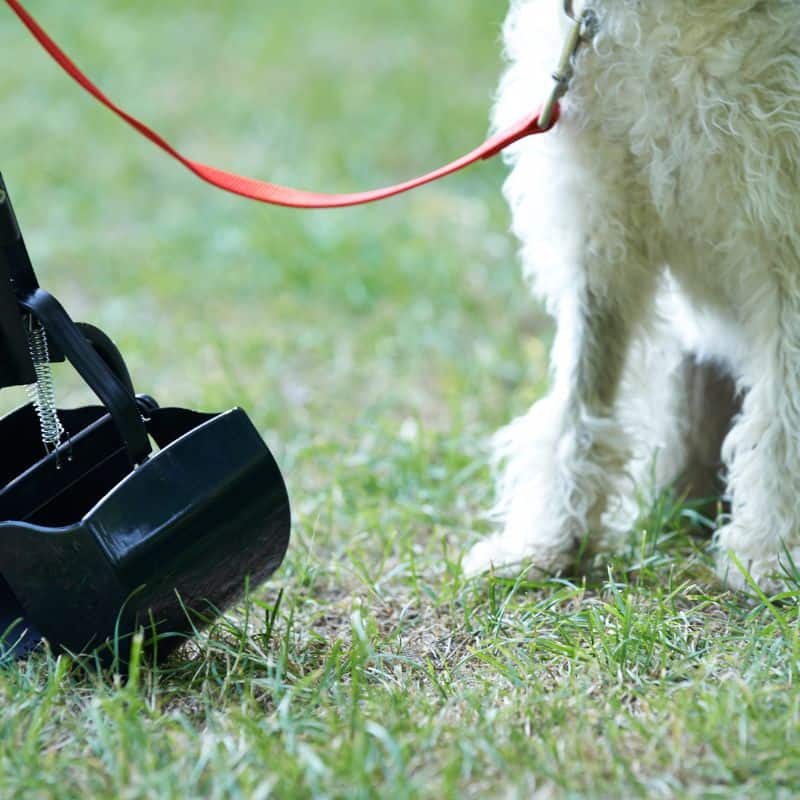Owning a rental property can be a profitable investment, but it also comes with certain legal responsibilities. One of the most complex issues landlords face is dealing with tenants who own dogs. As a landlord, it is essential to understand your rights and responsibilities when it comes to dogs owned by your tenants. This article will explore the laws and regulations surrounding landlord liability for tenants’ dogs in Alabama.
In Alabama, the landlord is generally not liable for injuries caused by a tenant’s dog. Under Alabama law, a person injured by a dog must prove that the dog’s owner or keeper knew or should have known that the dog was dangerous. Therefore, the tenant is usually the one who is responsible for any damages or injuries caused by their dog. However, there are some exceptions to this rule.
Is a Landlord Responsible if a Tenant Dog Bites Someone?
If the landlord knew or should have known that the tenant’s dog was dangerous and failed to take any action to protect others, the landlord could be held liable for any injuries caused by the dog. For example, if a landlord is aware that a tenant’s dog has a history of biting and fails to take any action to remove the dog or warn others, the landlord could be held responsible.
Landlords should also be aware of any breed-specific laws in their area. While Alabama does not have a statewide breed-specific law, some local ordinances prohibit certain breeds like pit bulls. If a tenant owns a prohibited breed, the landlord could face fines or legal action.
To minimize the risk of liability, landlords can include a pet policy in the lease agreement. The policy should outline the rules and regulations surrounding pets, including breed restrictions, leash laws, and vaccination requirements. Additionally, landlords can require tenants to purchase liability insurance to cover any damages caused by their pets.
Can a Landlord Make You Get Rid of Your Dog?
In most cases, landlords cannot legally make tenants get rid of their pets. However, if the pet is causing a disturbance or violating the terms of the lease agreement, the landlord may have grounds to ask the tenant to remove it from the premises. Landlords should be aware of and comply with all state and local laws regarding eviction procedures before taking action against a tenant with a vicious or destructive pet. Furthermore, landlords may require tenants to provide proof of pet ownership or vaccination records as part of the terms of their lease agreement.

Can You Get Evicted for Having a Pet?
If a tenant brings a pet onto the rental property without prior consent from their landlord, they risk being evicted. Furthermore, if the pet is violating the terms of the lease agreement or causing damages to the property, the landlord may have legal grounds to evict the tenant. It’s important for landlords and tenants alike to familiarize themselves with all applicable laws regarding pets in order to avoid conflict. In some cases, landlords may be able to work with tenants to modify the lease agreement or provide additional training for the pet in order to address any issues without resorting to eviction. It’s always recommended that both parties take caution and consult an attorney when dealing with pet-related matters.
My Responsibility as a Tenant With Pets
It’s important for tenants to understand that while they may have a right to keep a pet on the premises, it is ultimately the landlord’s property and he/she has the right to make rules about them. Tenants should always contact their local officials for the laws and ordinances in their area to find out what the rules are for keeping pets. Additionally, landlords may have additional restrictions regarding the breed and size of pets allowed on their property. Tenants should always be mindful of these restrictions when choosing a pet or when shopping for an appropriate apartment. Lastly, tenants should always make sure to clean up after their pet in order to avoid disputes with neighbors and/or landlord. Be sure to keep your pet on a leash when outside and observe all local laws concerning pet licensing. With proper care and respect for the landlord’s property, tenants can enjoy the companionship of a pet without any problems.

It is also important to review your lease agreement before getting a pet. Many landlords require tenants to sign a Pet Addendum, which outlines the specific details about keeping pets on the property. Pet Addendums typically include information such as the pet deposit, monthly fees, and any restrictions on certain breeds or sizes of animals. It is important to fully understand and abide by all of these restrictions when choosing a pet.
Dealing with tenants who own dogs can be a challenge for landlords, but understanding the laws and regulations surrounding landlord liability can help mitigate the risks. While landlords are generally not responsible for injuries caused by a tenant’s dog, they could be held liable if they fail to take action to protect others or if they violate any local ordinances. Landlords should include a pet policy in their lease agreement and require tenants to purchase liability insurance to minimize the risk of liability. With the right precautions in place, landlords can enjoy the benefits of owning rental property without the added stress of dealing with tenant pets.
Need Help Managing Your Rental Properties?
The team at Continental Realty can help! We’re a trusted local property management company serving the greater Birmingham AL area. We have years of experience in handling tenant pet issues such as enforcing lease agreements, dealing with insurance claims, and providing an overall safe living environment for your tenants. Contact us today to learn more about how we can help manage your rental property!


Recent Comments